What If...?: Memorable One-Off Episodes of TV Shows
"I'm not interested in preserving the status quo; I want to overthrow it." - Niccolo Machiavelli
One of the reasons I seldom watch mainstream TV shows (the ones with constant commercials, airing on the likes of ABC, NBC, CBS, Fox, etc.) is due to their repetitive nature of mostly covering the same ground as other like-minded shows. Mainstream television rarely strays from the status quo imposed by network executives or advertisers, perpetually keeping characters stuck at the same job, age, apart from their soulmates, in stalemates with their enemies, etc. However, occasionally, mainstream TV shows briefly upset the status quo via one-off episodes that explore scenarios normally off-limits. The catch is that such episodes always end in a twist that restores the status quo. Still, these one-off episodes offer rare and fun glimpses into fascinating scenarios that make you wonder where such storylines could potentially go if not for the meddling of network executives or advertisers. Today's post is dedicated to ten cool one-off episodes, listed in chronological order by original air dates. I've also spoiler-proofed each episode's twists, for those who prefer to watch such episodes themselves. To read these spoilers, simply hover your mouse cursor over the redacted aquamarine portion of text and then highlight it. Ready? Let's go!
"Shredderville", Teenage Mutant Ninja Turtles, November 22, 1989
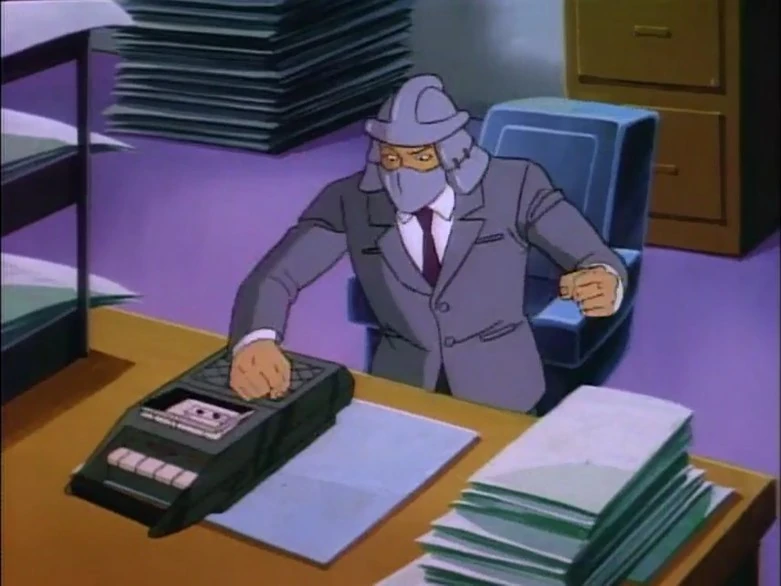
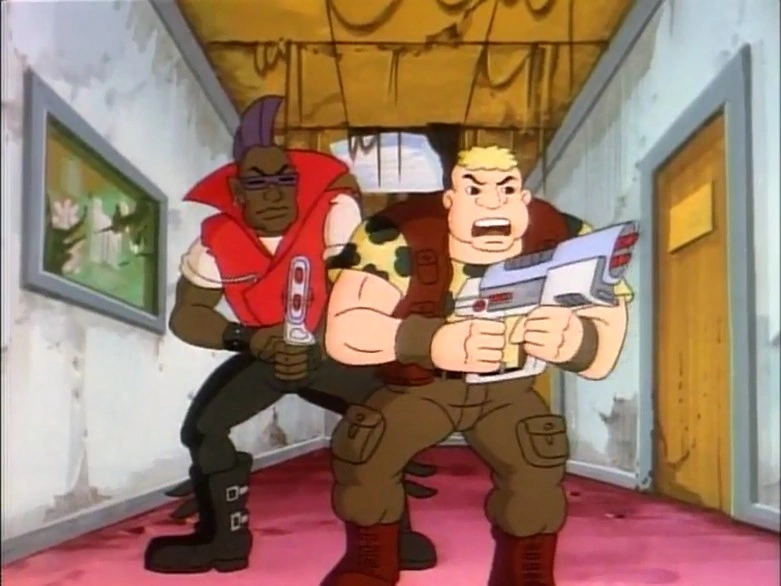
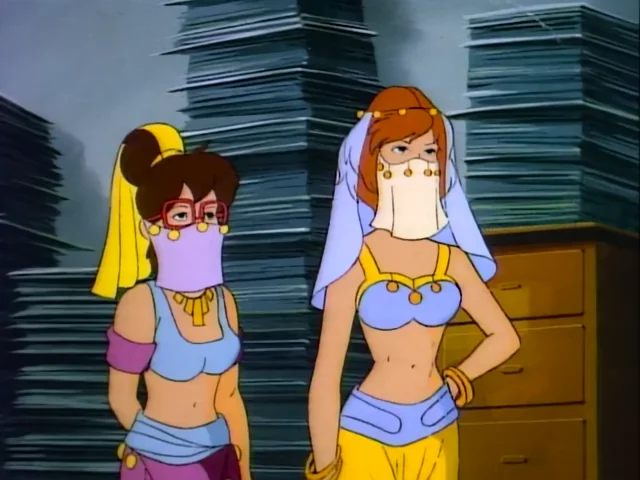
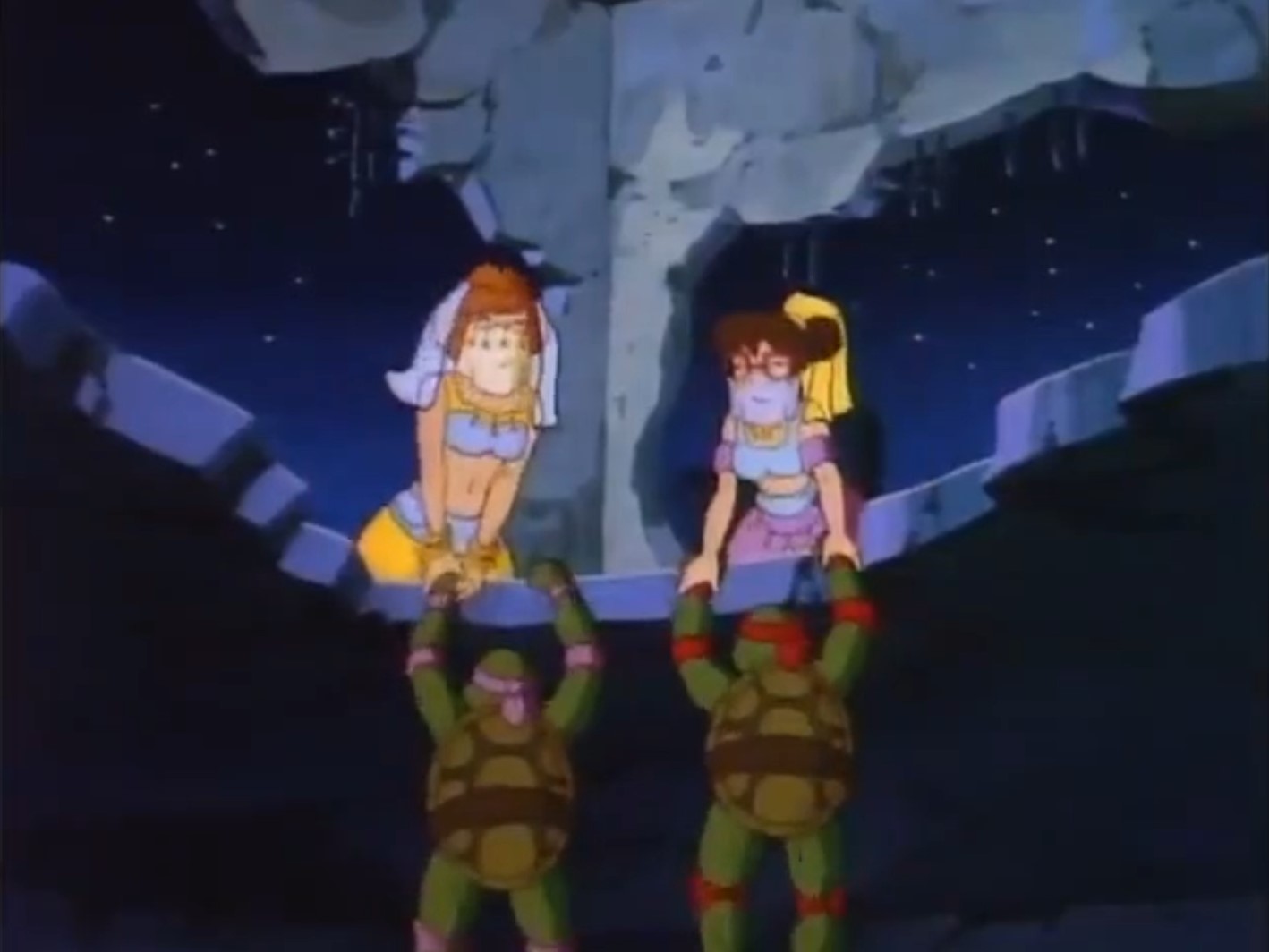
Premise: In a clear homage to It's a Wonderful Life, the Teenage Mutant Ninja Turtles find themselves stranded in an alternate reality in which they never existed. In this dystopian world, Shredder is an ineffective business-suited bureaucrat, Bebop and Rocksteady were never mutated into their animal forms and remain human, Burne and Vernon produce televised propaganda for Shredder, and April and Irma work as "harem girls". Shocked at this nightmarish hellscape, the Turtles team up with April and Irma to confront Shredder and set things right. In the end...Shredder's tower begins collapsing, causing the Turtles to fall into a newly formed pit. Luckily, April and Irma grab their hands and attempt to pull them from the abyss...the Turtles then awaken at home, realizing the alternate reality was nothing more than a shared nightmare. Thus, the relieved pizzaholics learn the adage, "there's no place like home."
My Two Cents: Given the goofy and lighthearted tone of the 1987 Teenage Mutant Ninja Turtles cartoon, I thought it was cool seeing the Turtles faced with the dark outcome of a victorious Shredder.
"Demise of Hook", Fox's Peter Pan & the Pirates, November 8, 1990
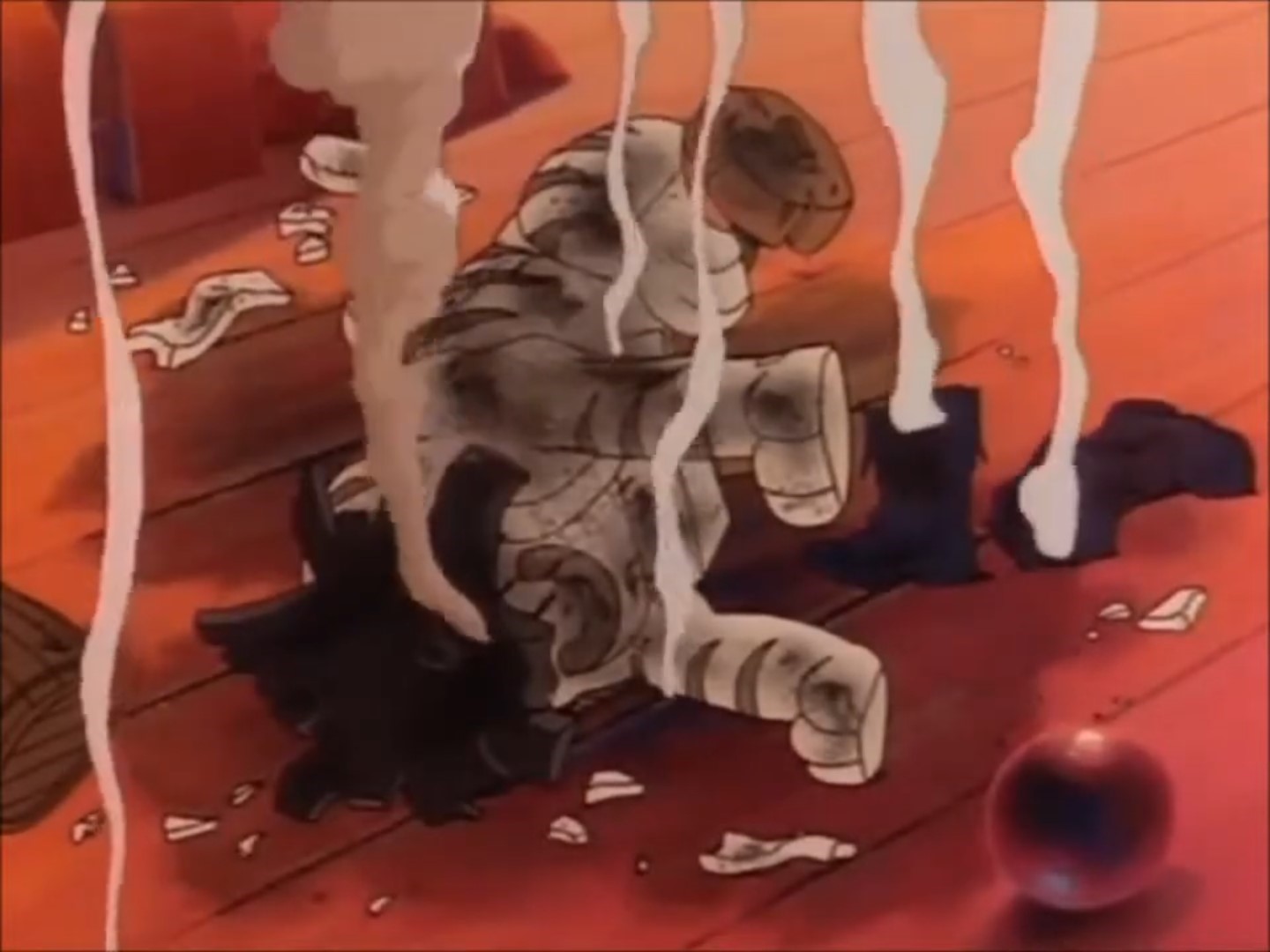
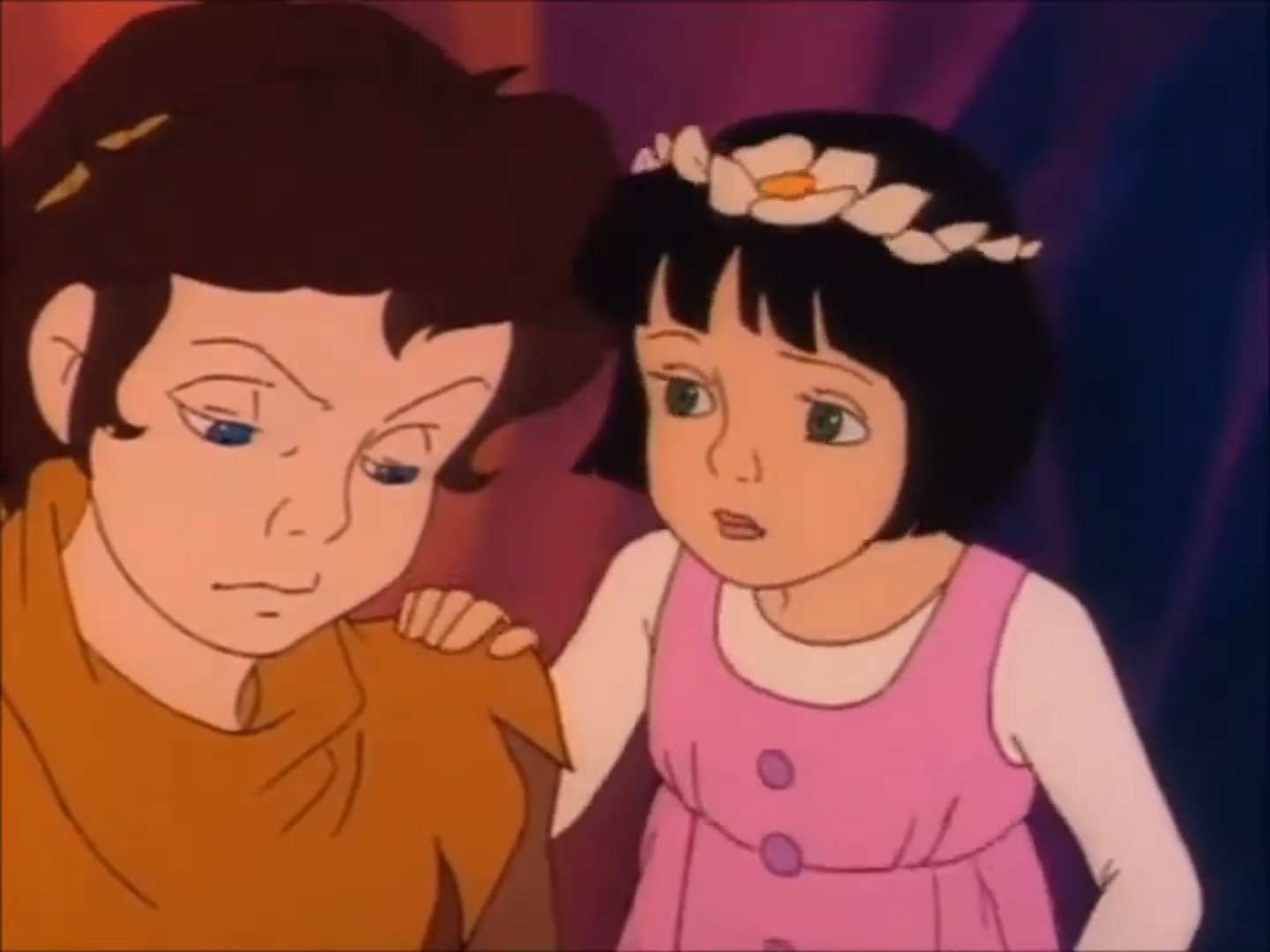
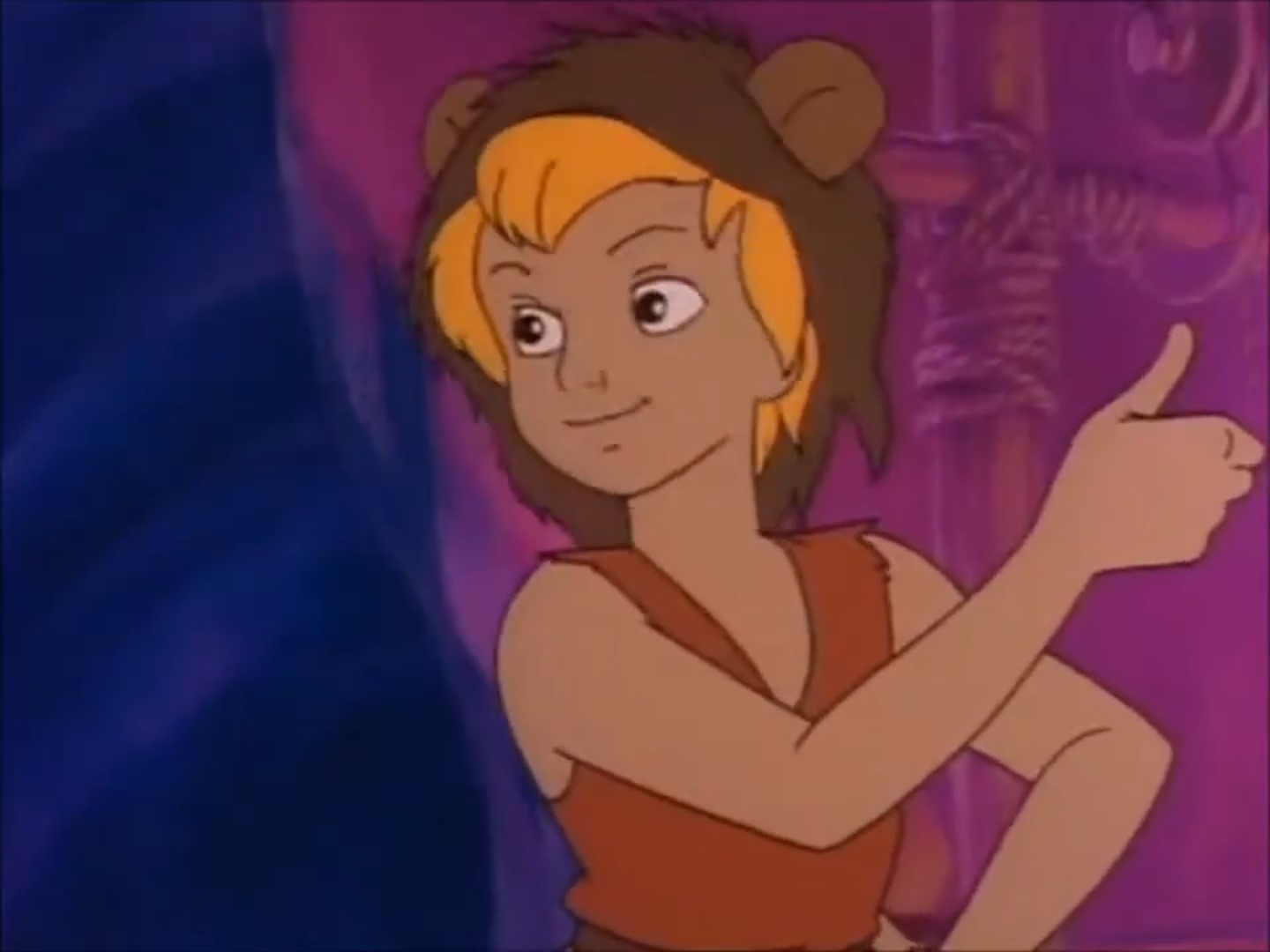
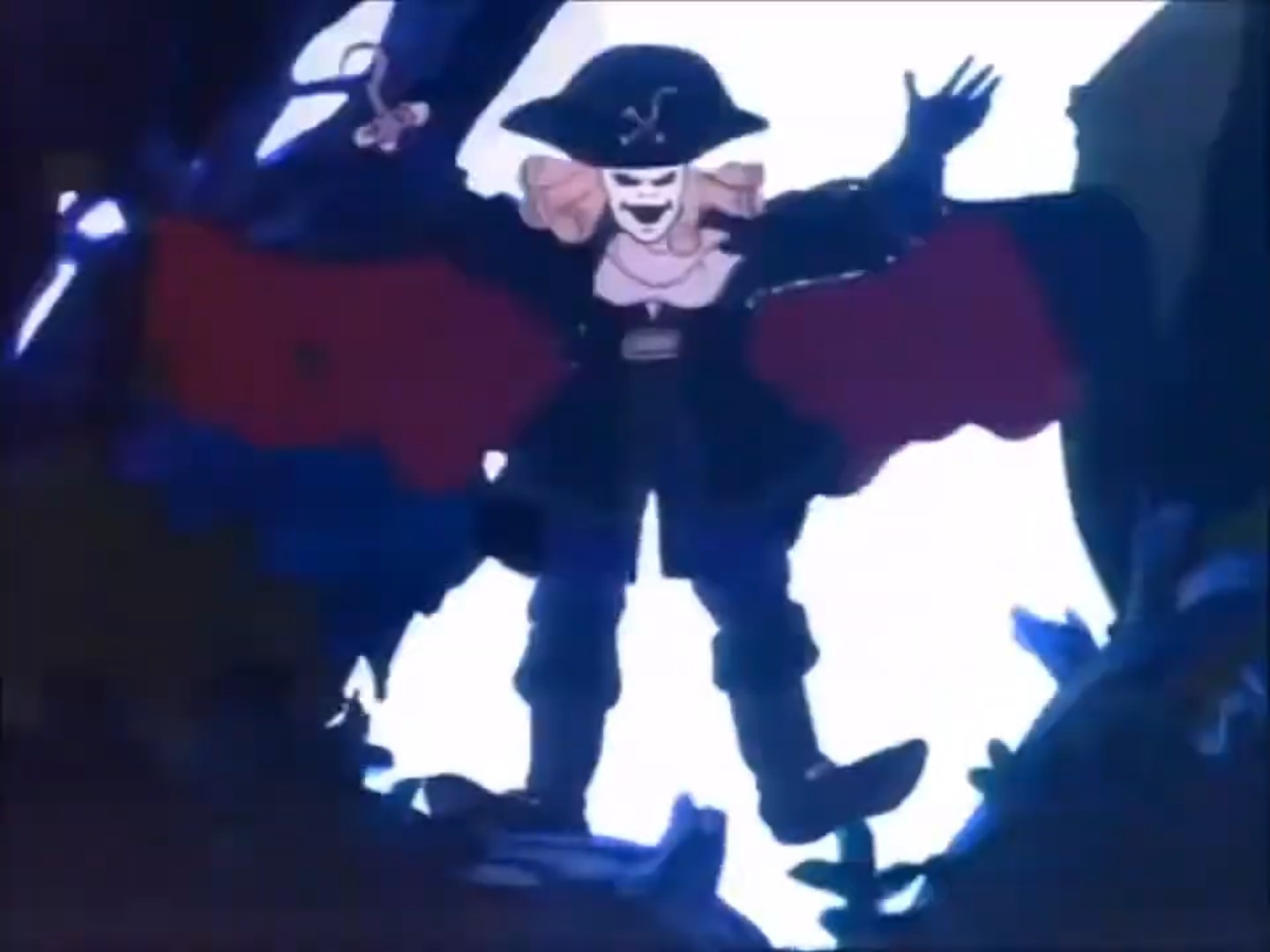
Premise: During one of his daily skirmishes with Peter Pan, Captain Hook (brilliantly voiced by Tim Curry) is killed in an explosion, which results in the grieving pirates departing Neverland, forever. While Wendy and company celebrate their ultimate victory, Pan is despondent over Hook's passing, dreading a life of eternal boredom in Neverland. Thankfully for Pan, his fears prove unfounded, as Hook's ghost returns from the netherworld, seeking vengeance on the boy who bested him in battle. In the end...the reports of Hook's death were greatly exaggerated, as his "ghost" removes what turns out to be a mask, revealing to a shocked Pan that he's still very much alive. Hook explains how he faked his own death and ghostly return via elaborate tricks straight out of a magician's handbook. Pan then defeats him once more, and their eternal war of attrition resumes, much to the delight of Pan.
My Two Cents: I dig the two-for-one approach of this episode of Fox's Peter Pan & the Pirates; exploring both the death and ghostly return of Hook, as well as how Pan would react to such scenarios.
"Dead Duck", Darkwing Duck, February 17, 1992
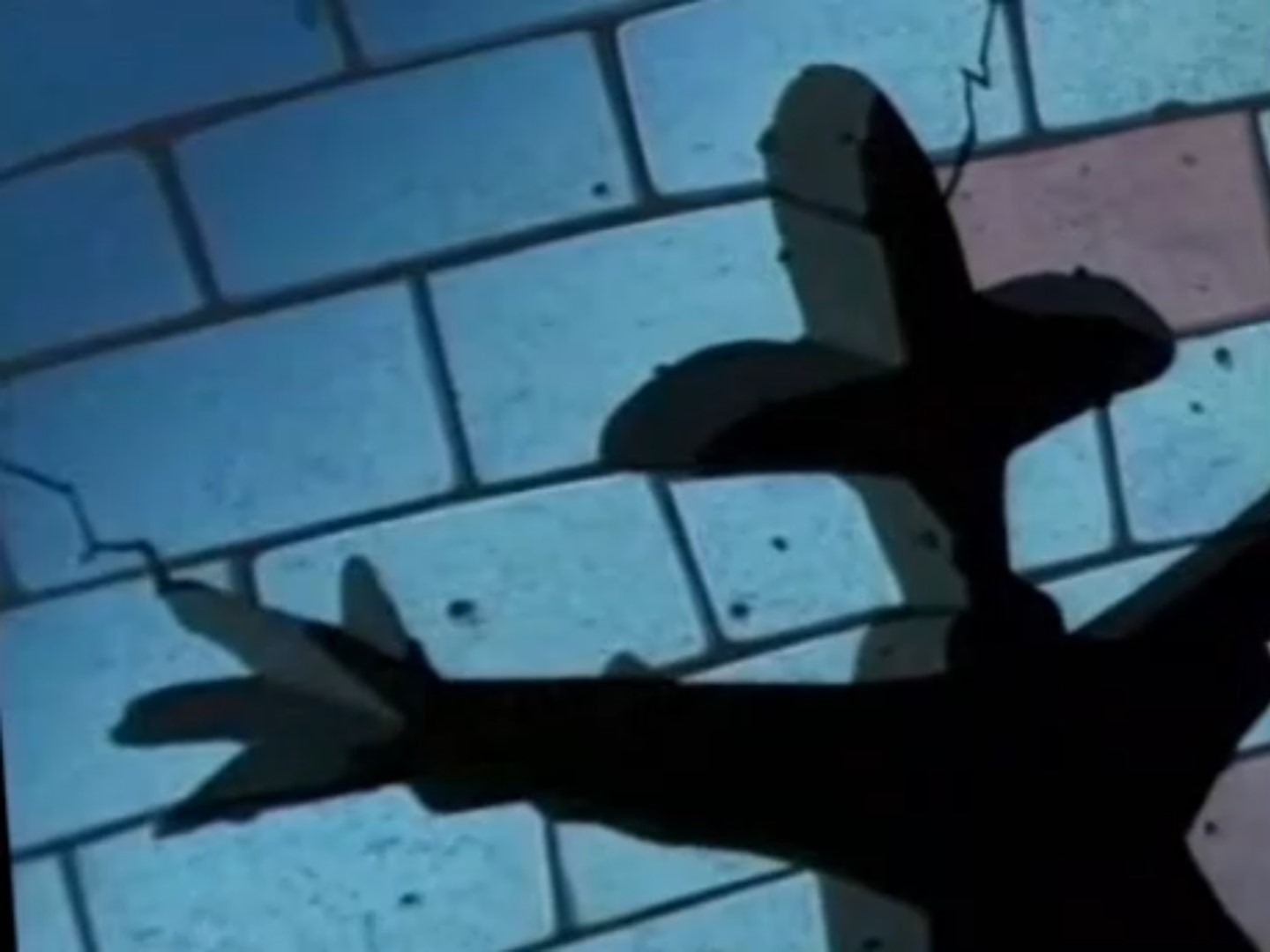
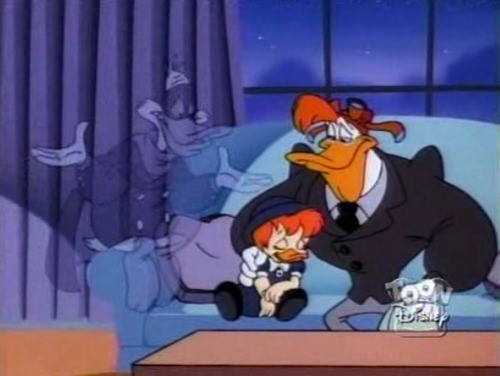
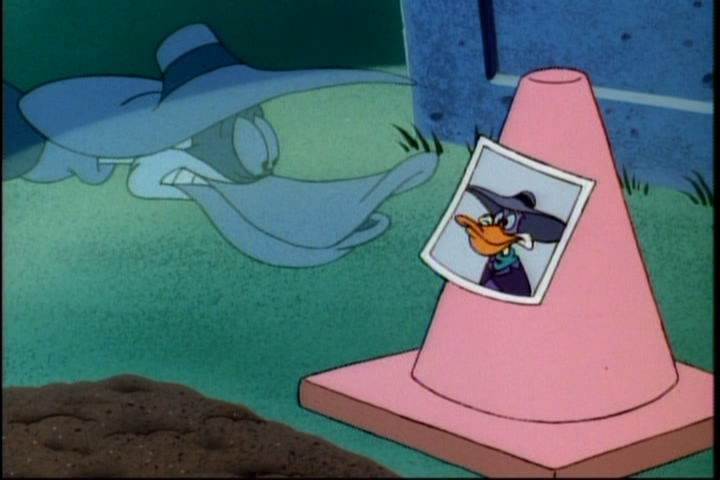
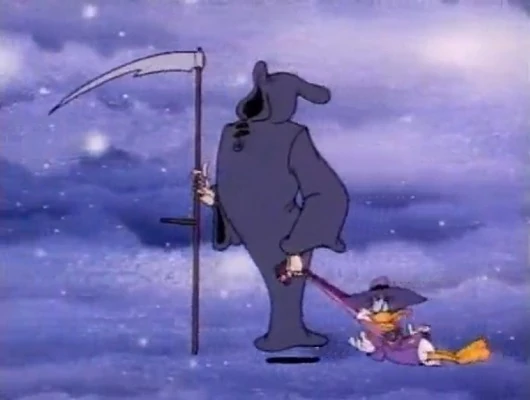
Premise: While in pursuit of Megavolt, Darkwing Duck is killed in a traffic accident. Upon escaping the ethereal plane, Darkwing's ghost is outraged to learn Megavolt is now a celebrity making the rounds on talk shows dedicated to villains who murdered superheroes. Adding insult to injury, Darkwing's ghost visits the cemetery where he's been laid to rest, only to discover his "tombstone" is just a traffic cone with his picture taped to it. After failing to undo his deceased status, Darkwing's ghost comes to grips with the permanence of his passing and resolves to bring Megavolt to justice before his dogged pursuer, the Grim Reaper, can spirit him away to the great beyond. In the end...Darkwing's ghost clings to the Grim Reaper's robes, begging the Harvester of Souls for another chance. Darkwing then awakens to realize his death and afterlife were nothing more than a nightmare he experienced while knocked unconscious in his traffic accident. The concussed crime fighter is eternally grateful for receiving another shot at life, and as Tiny Tim would say, "God bless us, everyone."
My Two Cents: I always find it fascinating whenever the light-hearted Disney covers the sombre topic of death. While this episode of Darkwing Duck retains the cartoon's usual humour, it also doesn't shy away from brief moments of Launchpad and Gosling, Darkwing's sidekick and daughter, respectively, mourning the slain crime fighter. Kudos for keeping such emotional moments in the episode.
"Reality Takes a Holiday", Eerie, Indiana, April 12, 1992
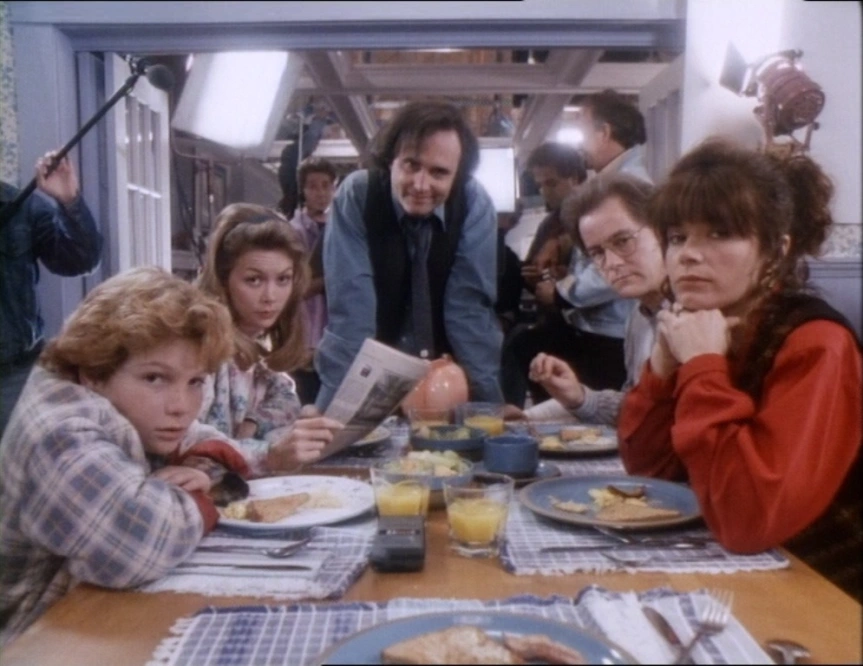
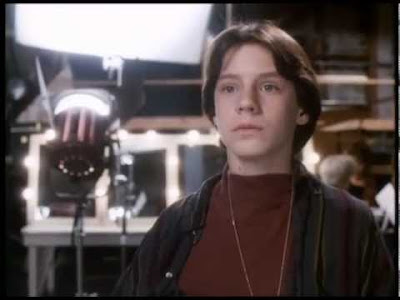
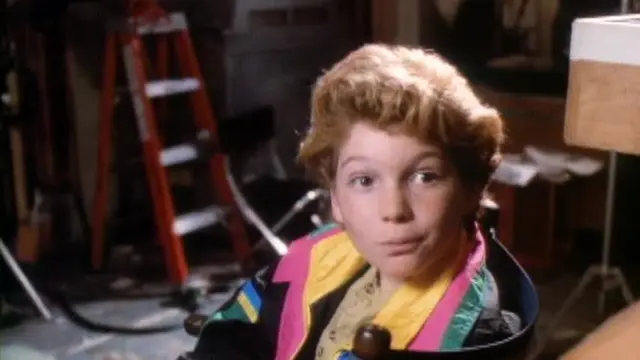
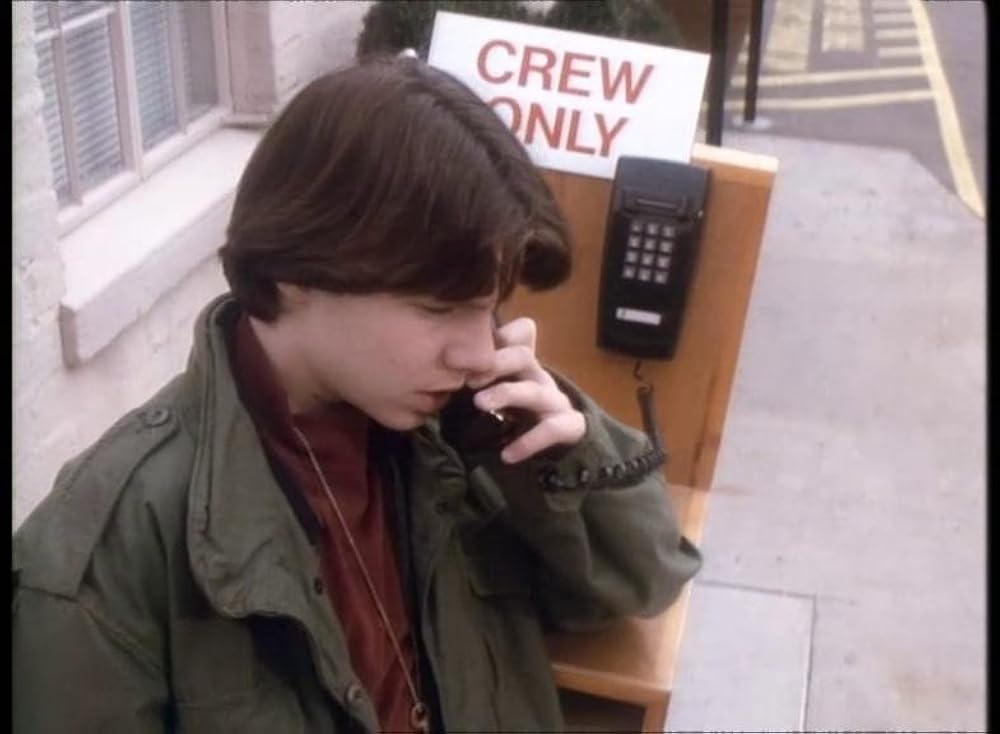
Premise: In Marshall Teller's small Midwestern town of Eerie, Indiana, the strange and unusual are just status quo. However, even Marshall is shocked when he finds himself transported to a Hollywood backlot, shooting an episode of Eerie, Indiana. Not only do his "family" and "friends" constantly refer to him as "Omri Katz", but they also insist they're all just actors. Further complicating matters, Omri learns that Eerie, Indiana's director, Joe Dante, is planning to kill off his "character", Marshall, later that day, replacing him with Jason Marsden as the show's new lead. Desperate to prevent this outcome, as he fears it will kill him for real, Omri seeks co-star John Astin's advice and sets off to change Joe Dante's mind and find his way back home. In the end...Omri successfully rewrites the episode's ending, preventing Marshall's death, much to the chagrin of Jason Marsden. Omri is then whisked back to his small Midwestern town, where his family and friends are back to normal, and once again recognize him as Marshall.
My Two Cents: I've always loved this episode's ingenious fourth wall-breaking plot, giving the cast a rare opportunity to play fictionalized versions of themselves. I wish more TV shows would make one-off episodes as cool as this one. Bravo.
"Perchance to Dream", Batman: The Animated Series, October 19, 1992
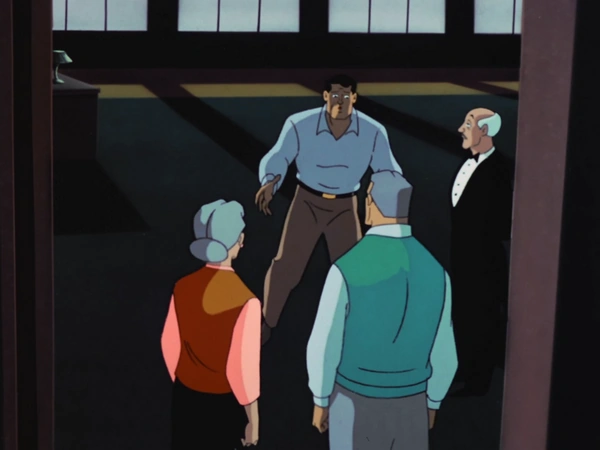
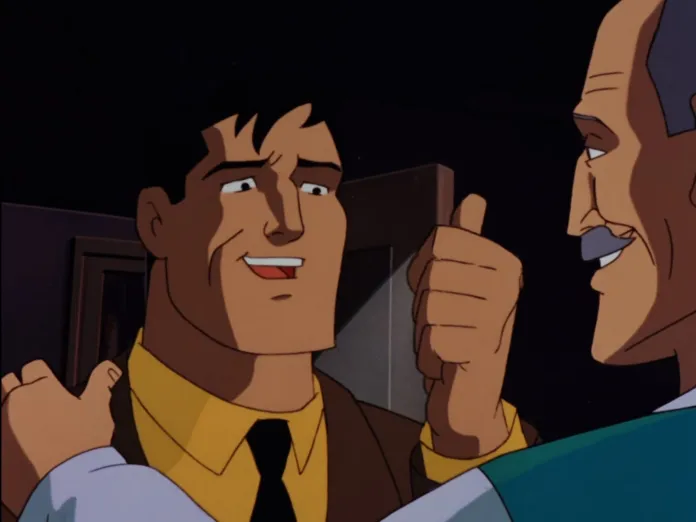
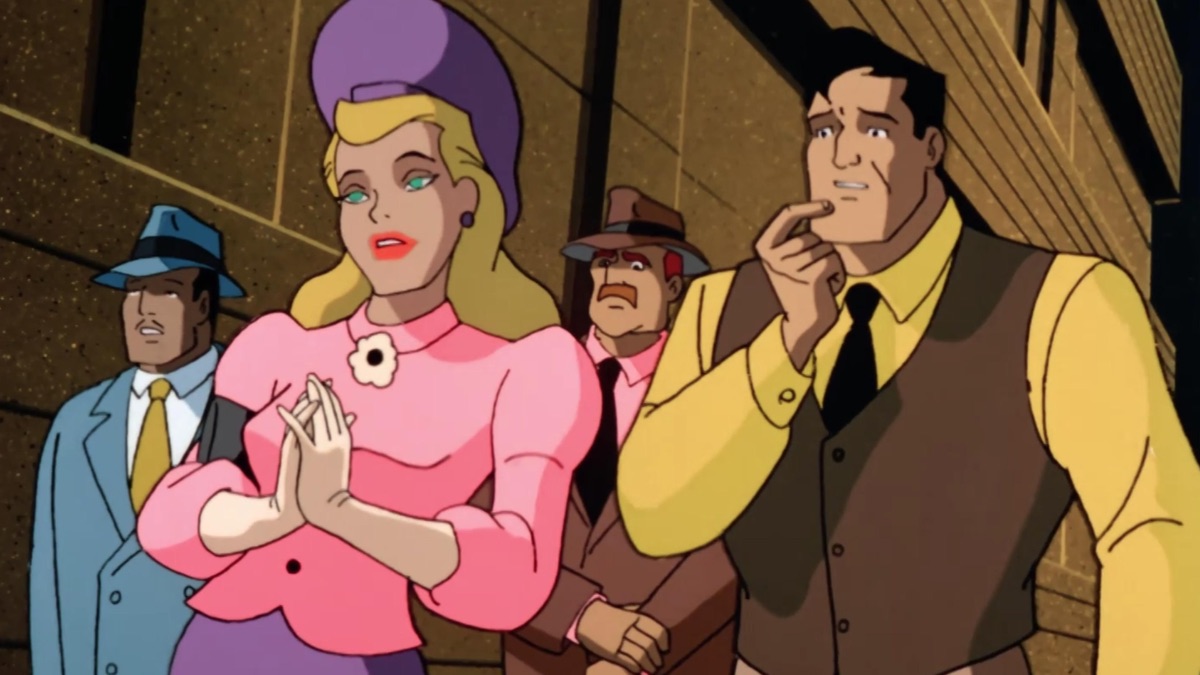
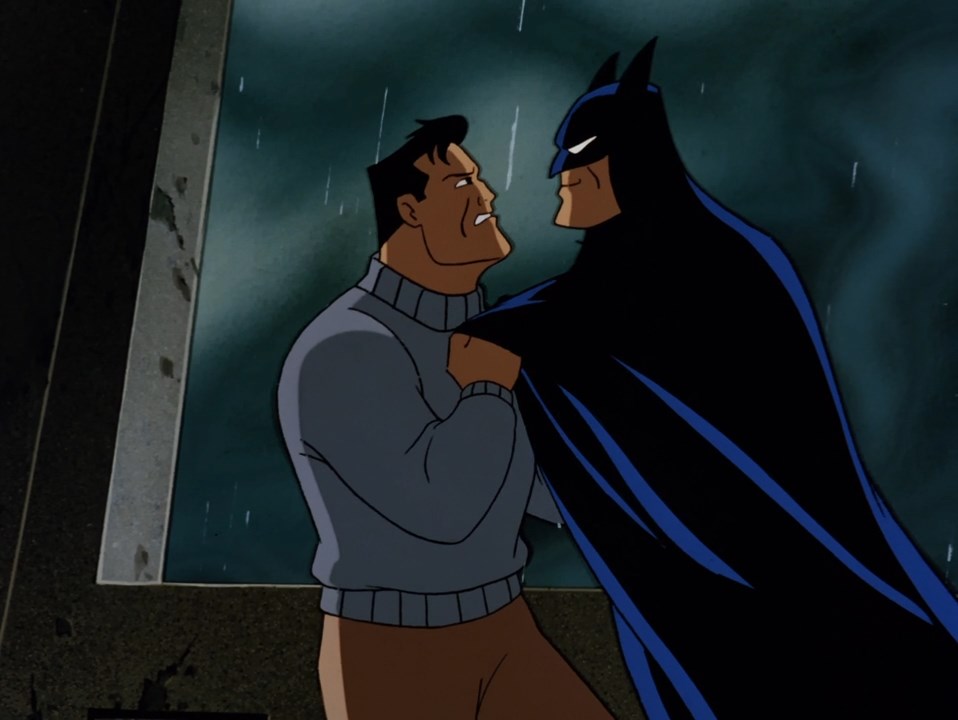
Premise: One morning, Bruce Wayne awakens to the triple shock of learning his murdered parents, Thomas and Martha, are still alive, he's engaged to Selina Kyle, and Batman is somebody else. While this scenario should be a dream come true for Bruce, he just can't shake the feeling that something's amiss with his now-utopian life, such as how all written material now appears as illegible gibberish. Thus, Bruce sets out to confront "Batman" and get to the bottom of this mystery, even if doing so means losing everything he's ever dreamed of. In the end...Bruce discovers that the Mad Hatter captured and trapped him within a virtual reality world during one of their battles. The Mad Hatter reveals he wanted to give Batman his dream world, in the hopes that such a paradise would appease the Caped Crusader enough to remain in the virtual realm, preventing him from ever again meddling in the Mad Hatter's affairs.
My Two Cents: This is an awesome episode of Batman: The Animated Series, given Batman's birth was a direct result of his parents' violent deaths. As such, it's so intriguing to see what Bruce Wayne's life might've been like had he and his parents not made the fateful decision to take a shortcut through a cinema's alleyway following an evening screening of The Mark of Zorro, many years ago. Also, being a huge fan of Alice's Adventures in Wonderland, the Mad Hatter (brilliantly voiced by Roddy McDowall) has always been one of my favourite Batman villains, period.
"Lisa's Wedding", The Simpsons, March 19, 1995
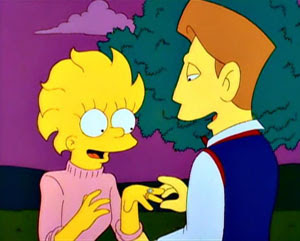
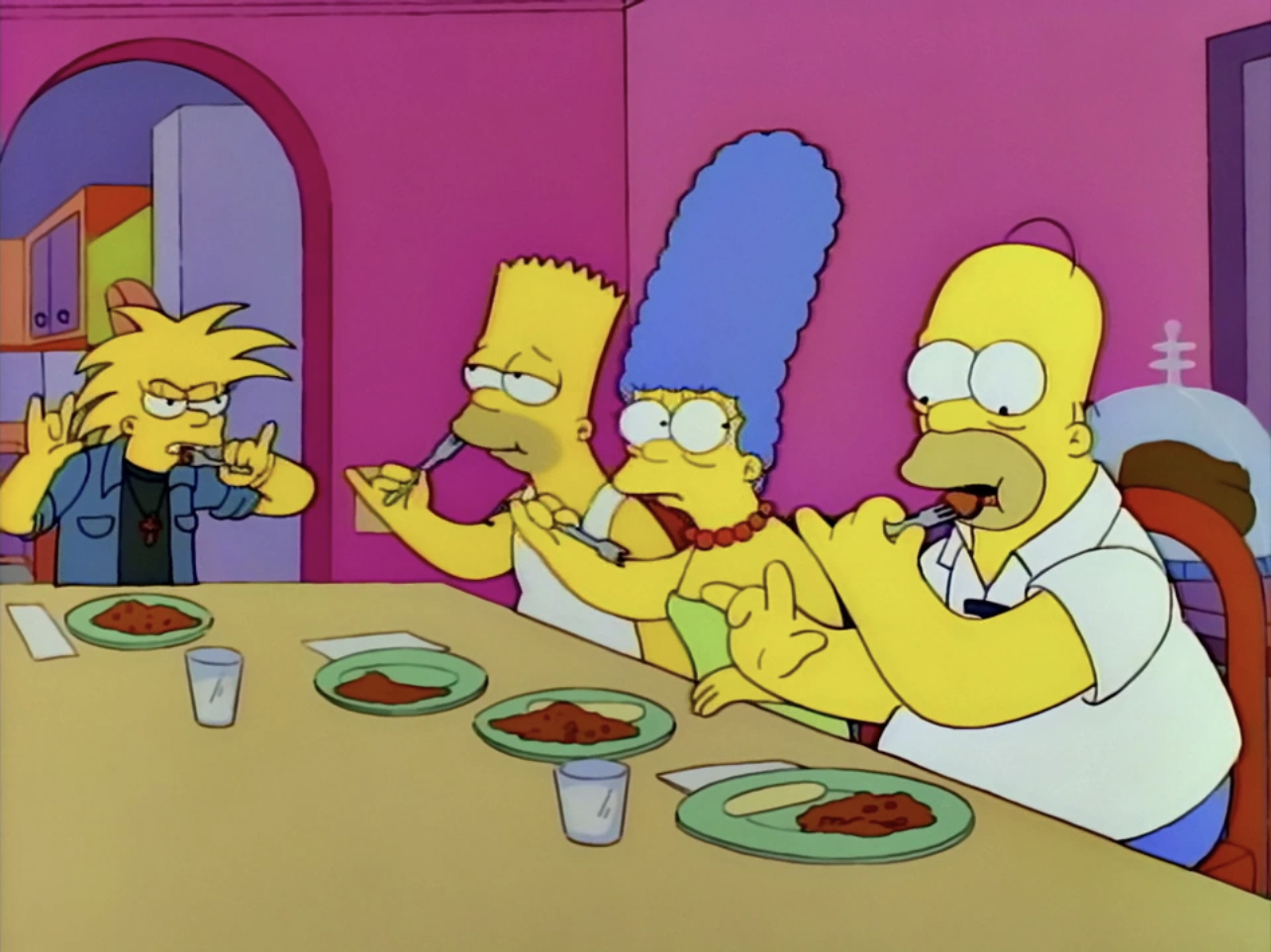
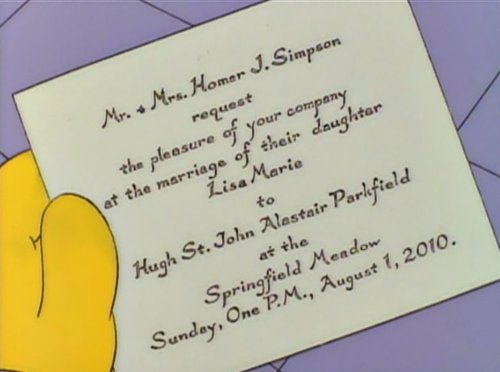
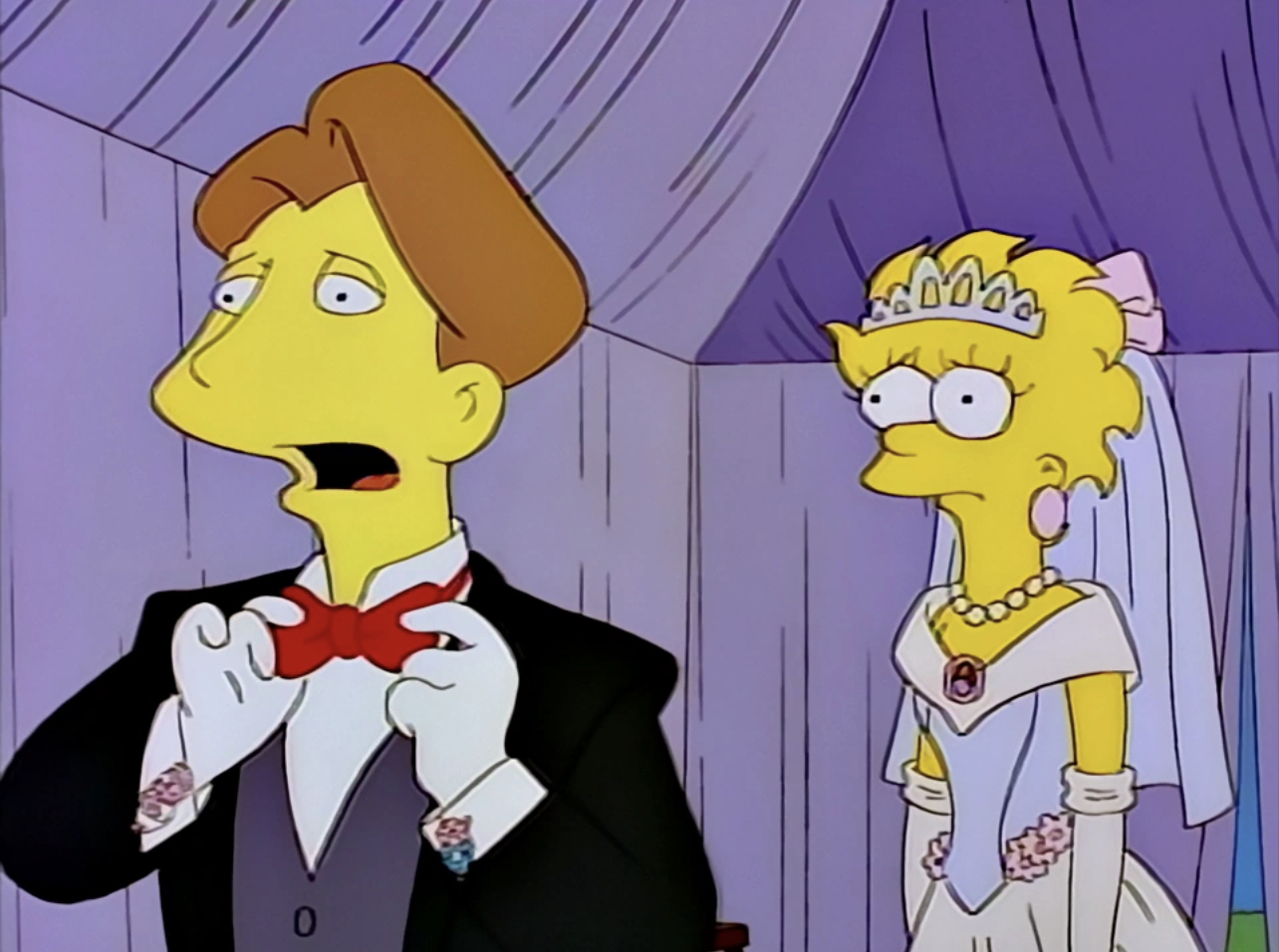
Premise: While at a Renaissance fair in 1995, Lisa Simpson meets a fortune teller who offers her a glimpse at her life fifteen years into the future, in the "distant" year of 2010. There, Lisa's in her twenties and engaged to English bloke, Hugh Parkfield. As the lovestruck couple plan their wedding, Lisa decides to bring Hugh back home to Springfield so she can introduce him to her parents and siblings. Unfortunately, Lisa's dismayed to learn her fiancé is a king-sized colossal jerk, who despises her loving, yet dysfunctional, family. When the controlling Hugh issues Lisa the ultimatum to sever all ties with her family following their nuptials, the bride-to-be must choo-choo-choose between Hugh or the Simpson clan. In the end...Lisa choo-choo-chooses wisely, standing by her family and kicking her loser fiancé to the curb. This ends Lisa's vision, returning her to the Renaissance fair in 1995.
My Two Cents: While other episodes of The Simpsons also covered the adult lives of the Simpson siblings, this one is arguably the best of the bunch, which is generally the case when comparing the never-ending cartoon's 1990s episodes to those of the 2000s.
Fun fact: I attended a wedding in Rochester, New York, in the summer of 2010, around the same time "Lisa's Wedding" was set. I remember instantly reflecting on this connection upon receiving my wedding invitation in the mail, and thinking how cool it was.
"All Growed Up", Rugrats, July 21, 2001
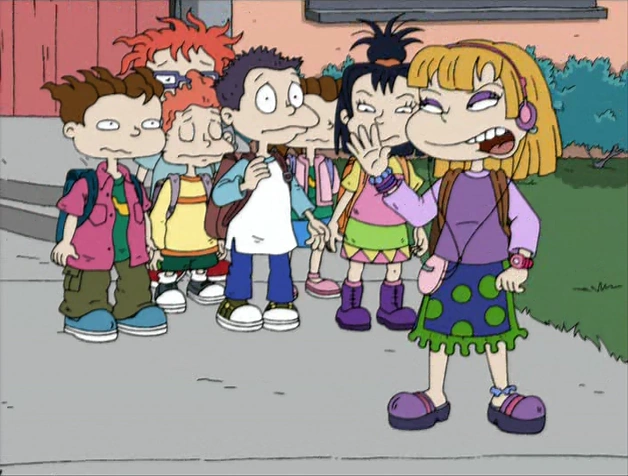

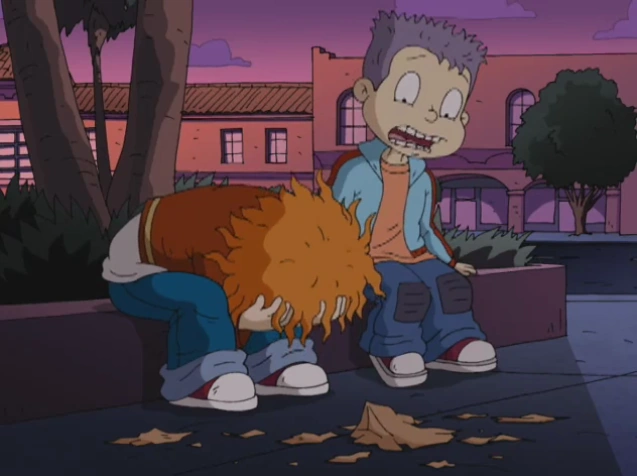
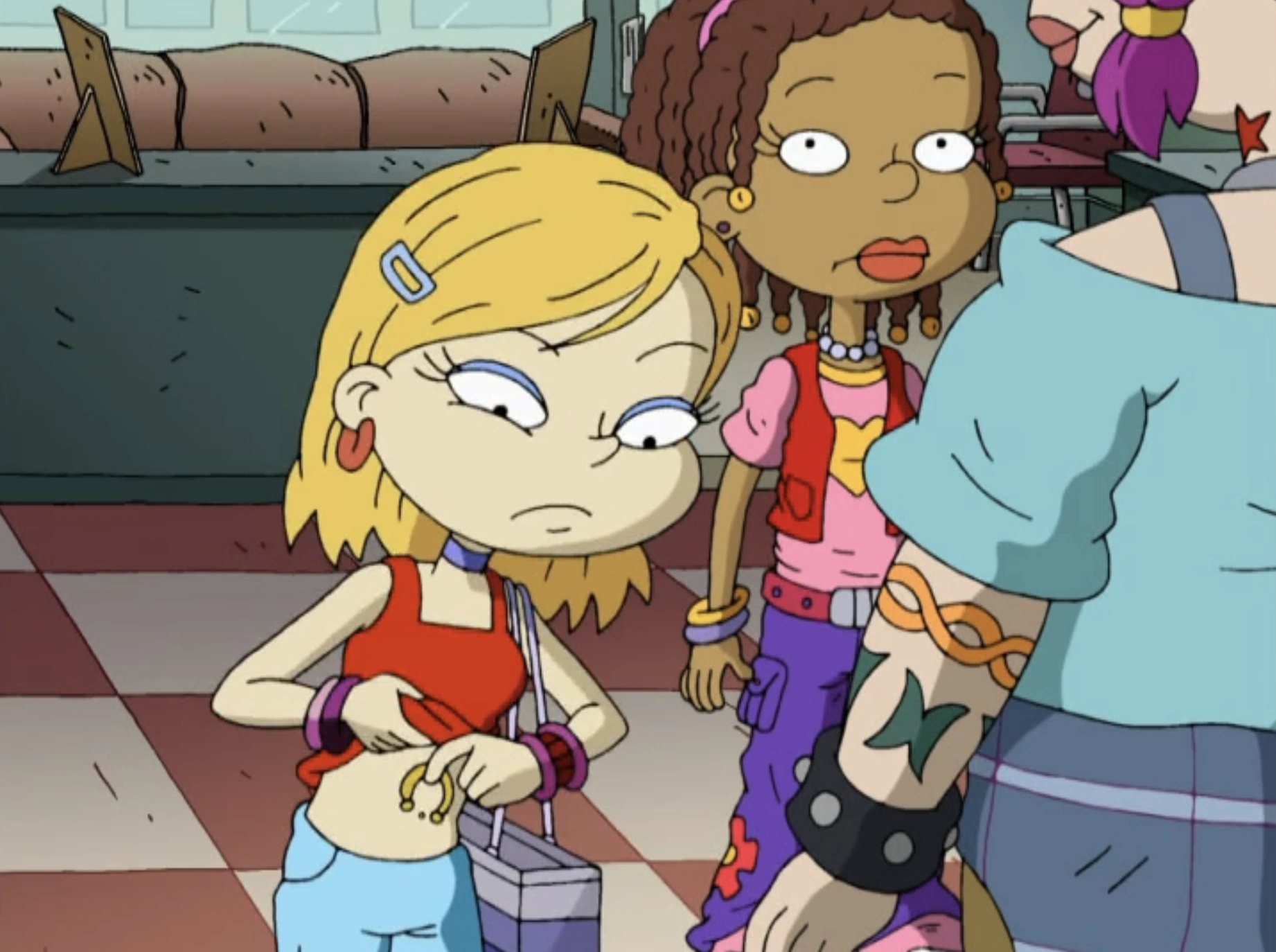
Premise: When the Rugrats play with the karaoke machine belonging to brat and bully extraordinaire, Angelica Pickles, they find themselves chased into a closet, where they imagine the karaoke machine is a time machine that can bring them a decade into the future. The tots then emerge from the closet as young middle school teens, who are all super excited to attend an upcoming concert by the Britney Spears-esque teen pop star, Emica. Being the eternal bully she is, the now-teenaged Angelica tries to pressure her younger cousin, Tommy, into stealing his father's beloved bling, so she can show it off at the concert. In exchange, Angelica promises to introduce Tommy's bestie, Chucky, to a popular girl the latter likes but is too afraid to approach. Thus, young Mr. Pickles finds himself in a mega pickle; peer pressure and what to do about it. In the end...Tommy gets grounded for losing the bling and then ungrounded for recovering it, Angelica confesses to her petty crime, Chucky meets his dream girl, everyone attends the concert...and the middle school teens re-emerge from the closet as tots, once again.
My Two Cents: Unlike the other one-off episodes in this list, "All Growed Up" was expanded into a full-fledged sequel series to Rugrats in 2003, titled, All Grown Up. This canonical continuation explored further plots relevant to angsty young teens, such as acne, first kisses, unintended thefts, and sneaking off to get belly button piercings. Pretty cool that a one-off special achieved this, huh? I wish more one-off episodes of TV shows were so lucky.
"If Boys Were Girls", Malcolm in the Middle, February 9, 2003
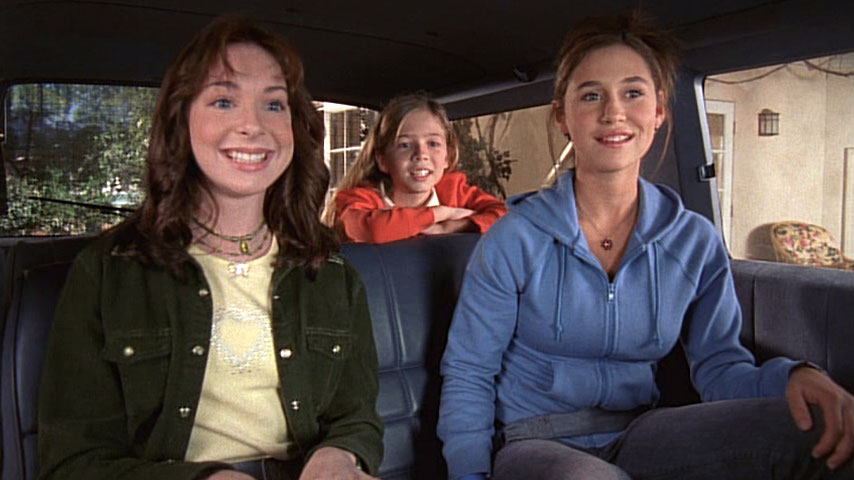
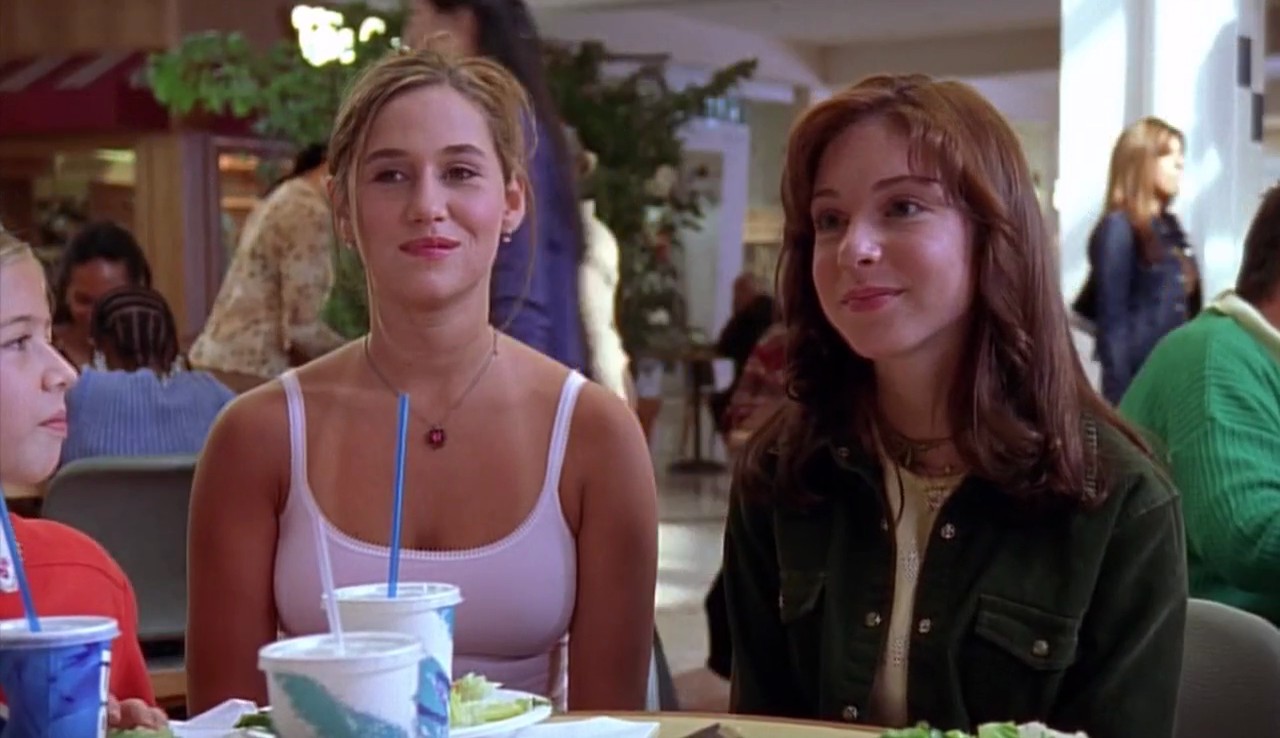
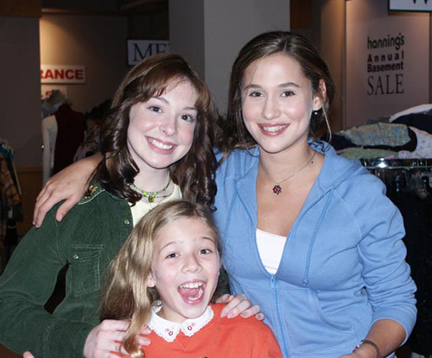
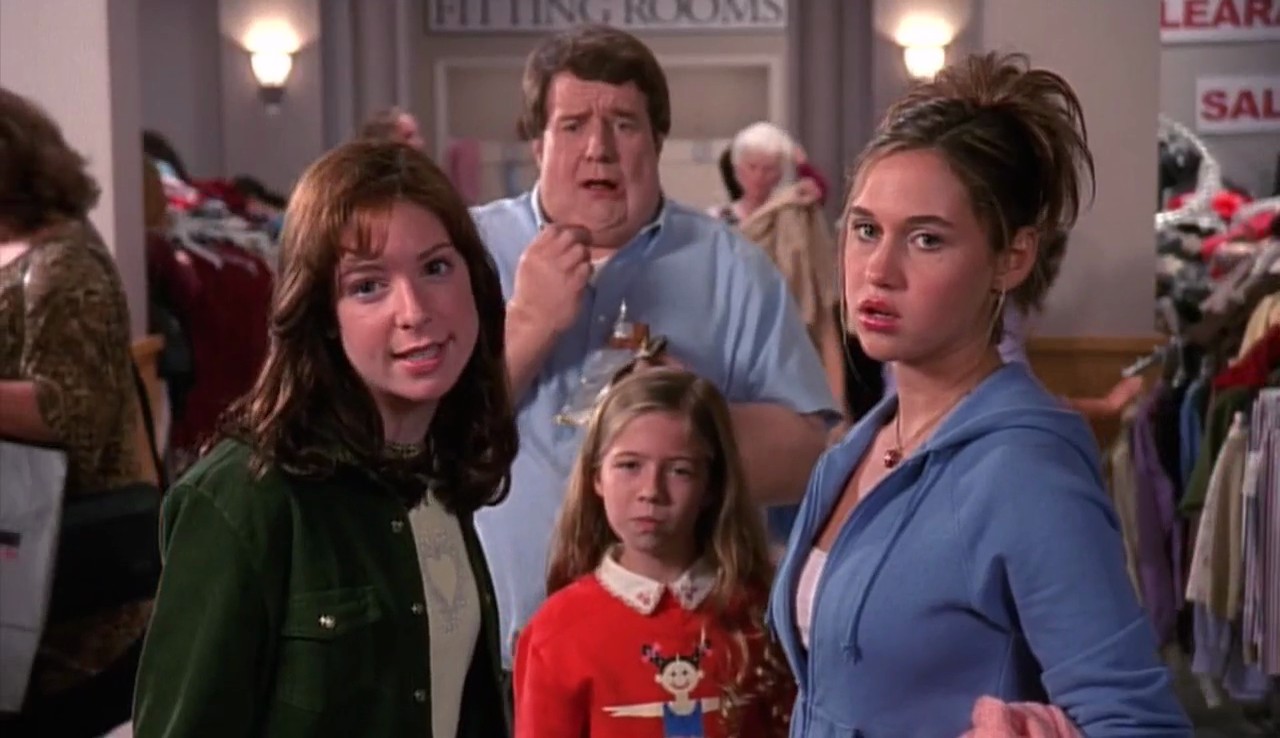
Premise: Lois Wilkerson is pregnant with her and husband, Hal's, latest child, though the baby's gender remains a mystery. Fed up with the wild antics of her rowdy teenaged sons, Malcolm, Reese, and Dewey, Lois imagines what her children would've been like had they all been born girls instead of boys. This results in a daydream featuring Lois and Hal's well-behaved teenaged daughters, Mallory, Renee, and Daisy. On the surface, the gender flipped siblings are the seemingly perfect, obedient teens of all parents' dreams, kind, polite, thoughtful, etc. However, while shopping for new clothes at the mall, the girls reveal their true colours to their stunned parents, which is cruel, spoiled, and manipulative, thus proving that gender doesn't shape one's personality. Lois realizes that her unruly teenagers were always destined to be troublemakers, whether they were boys or girls. In the end...Lois reveals that, despite the lessons learned from her daydream, she still secretly hopes her unborn child is a girl.
My Two Cents: I've always found this gender flipped episode of Malcolm in the Middle super cool, and would've loved to see more of Mallory, Renee, and Daisy's antics, a la All Grown Up.
"Leo", Being Erica, April 1, 2009
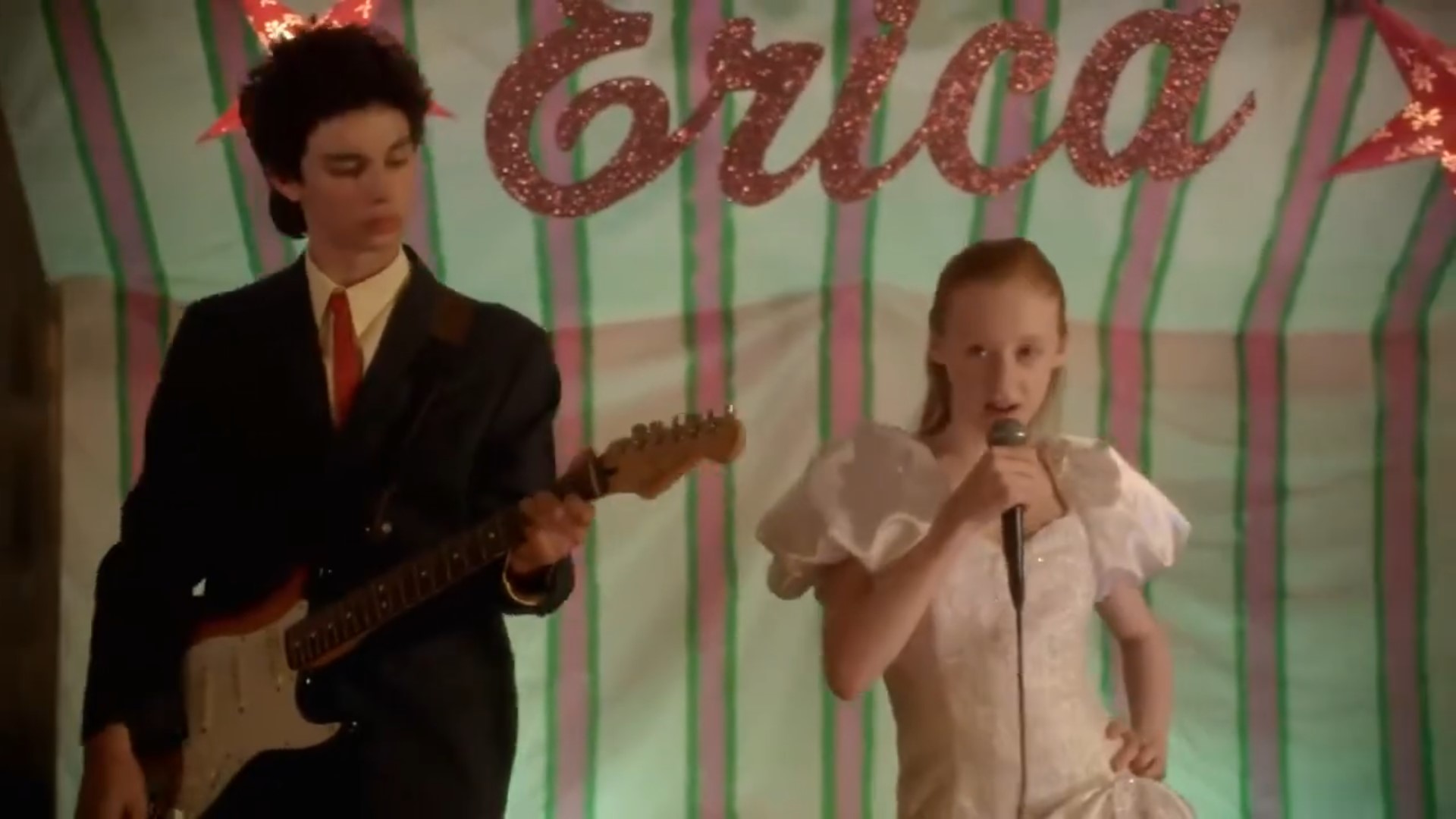
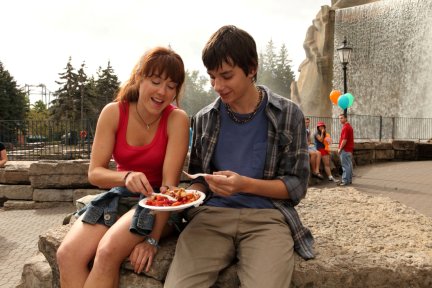
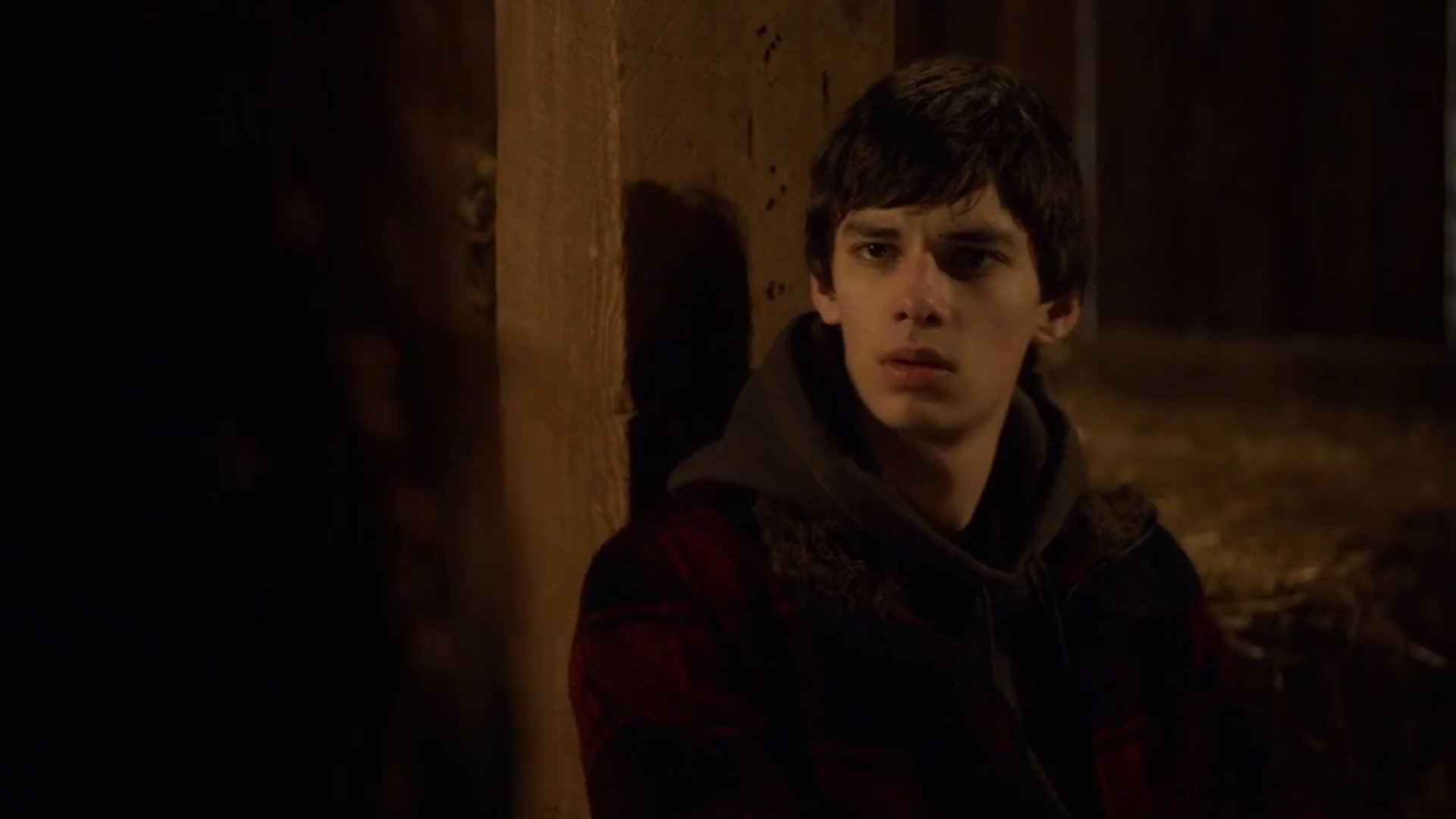
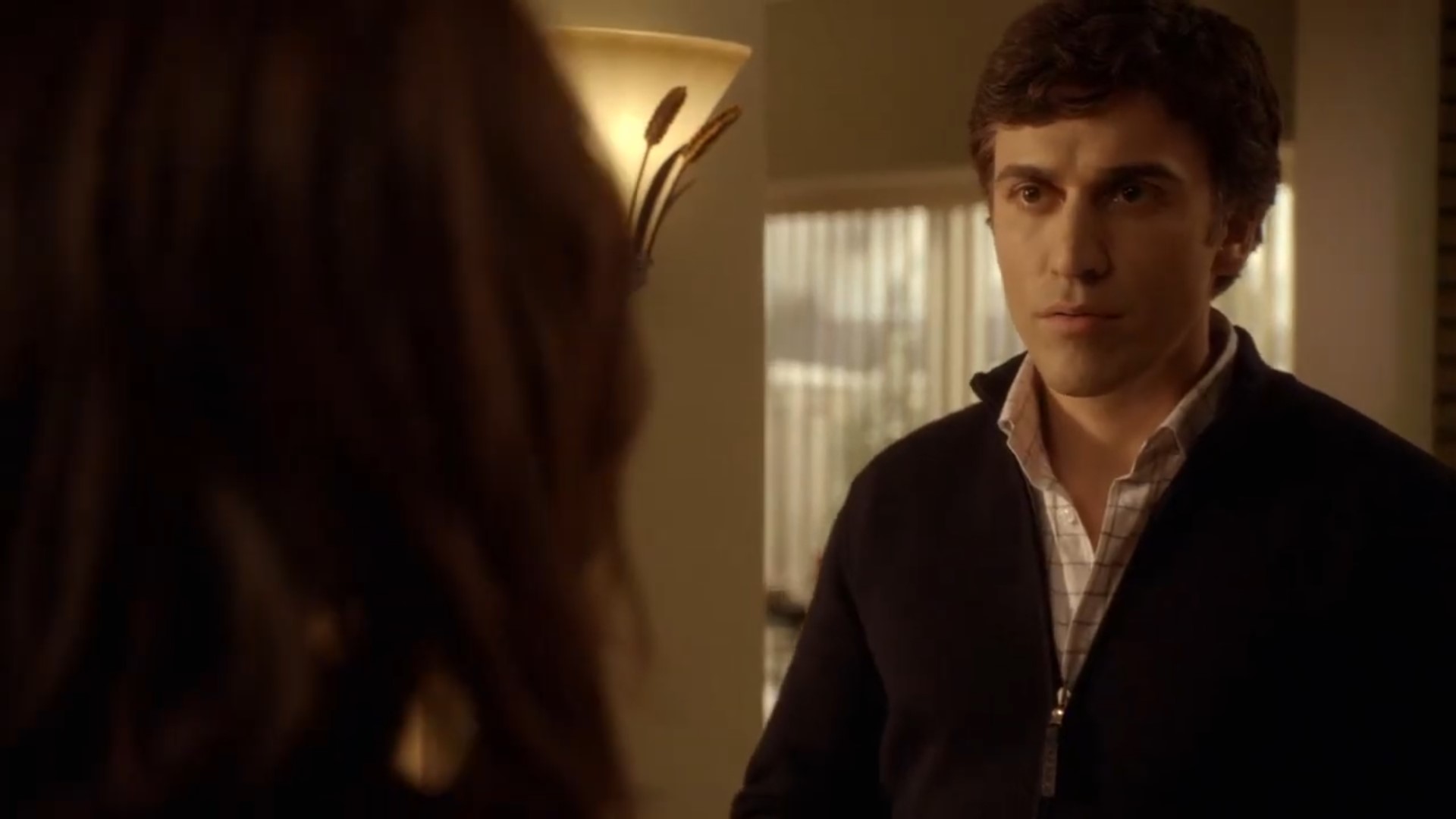
Premise: Imagine if the plot of the 2004 Jennifer Garner flick, 13 Going on 30, were reversed, with a woman in her thirties returning to her teens. That basically sums up the time travelling travails of Erica Strange, who's been given carte blanche from her "therapist", Dr. Tom, to return to her teenaged years and permanently undo her regrets of the era, such as how she behaved at her bat mitzvah or who she lost her virginity to. However, Dr. Tom expressly forbids Erica from undoing her biggest regret; saving the life of her beloved older brother, Leo, who tragically perished in a barn fire. Erica ultimately disobeys Dr. Tom, resulting in a middle-aged Leo being alive in the present. Unfortunately, Erica soon faces the consequences of her totally understandable actions. In the end...Dr. Tom is beyond pissed at Erica, dropping her as a "patient" and revealing a much darker, and scarier, side to his personality. Meanwhile, the "powers that be" swiftly undo Erica's undo by killing the middle-aged Leo in a traffic accident. An emotional Erica then returns to the past to undo her own undo, painfully leaving Leo to his fiery fate. However, even this doesn't rectify her relationship with Dr. Tom.
My Two Cents: I've always found it extremely annoying and hypocritical when time travel shows allow their protagonists to change superficial aspects of history, but nothing meaningful, such as saving the lives of loved ones. As such, it sure was refreshing seeing Erica break this ridiculous rule. I only wish this episode of Being Erica would've been brave and bold enough to keep middle-aged Leo alive in the present, making Erica's defiant act a permanent part of the show. After all, restoring the status quo is oh, so boring.
"The Abominable Bride", Sherlock, January 1, 2016
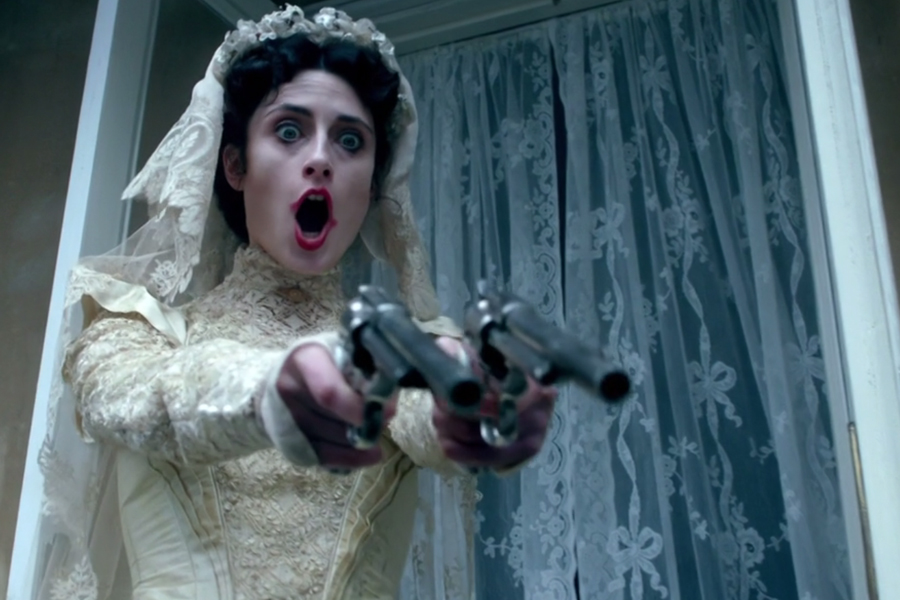
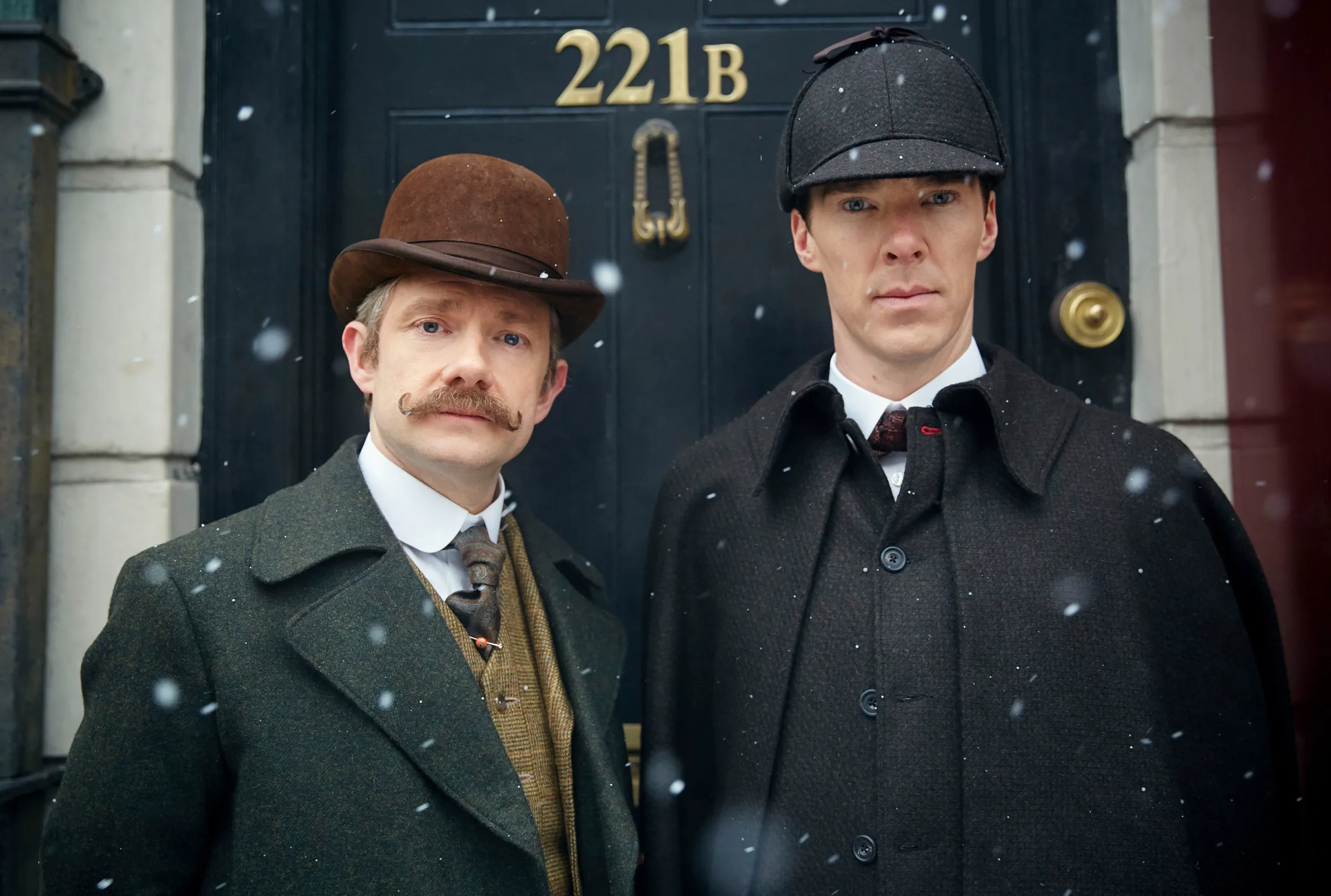
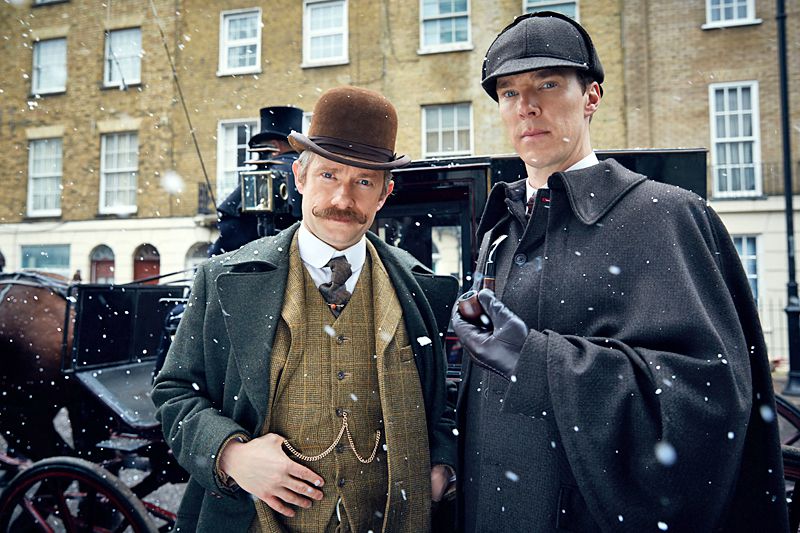
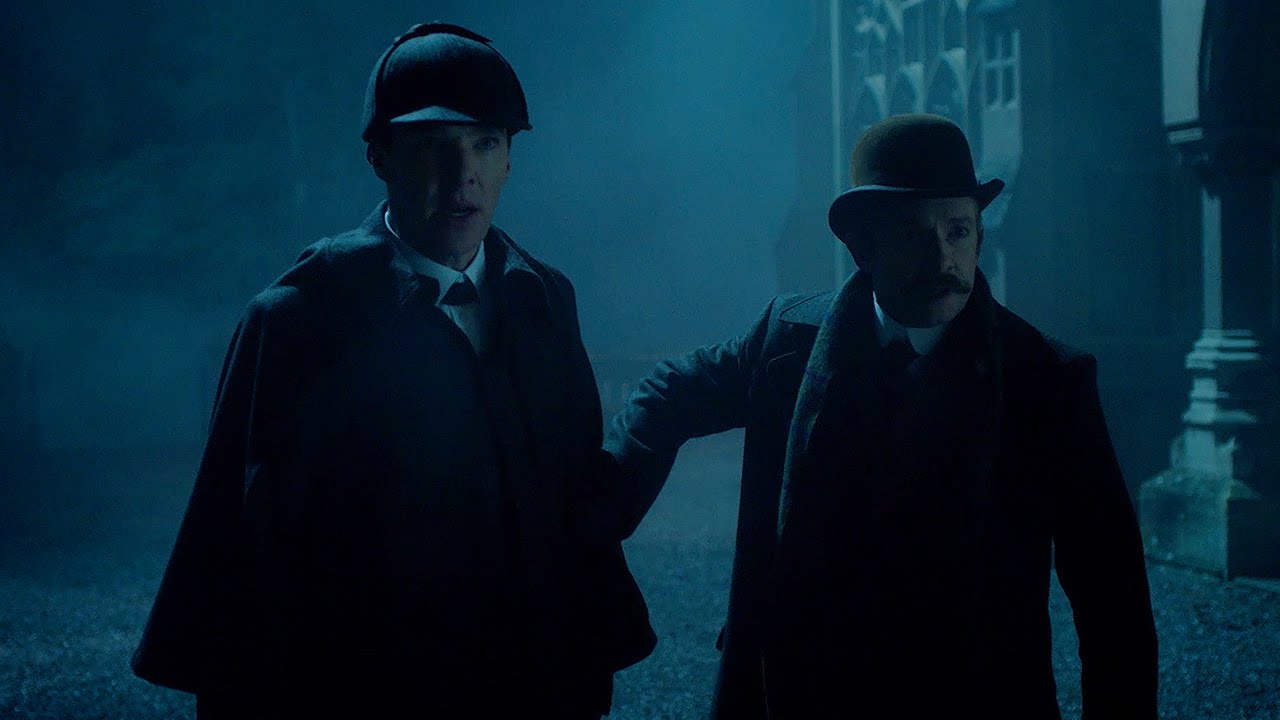
Premise: As I haven't remained caught-up with BBC's Sherlock, the 21st century portions of this special left me lost and confused, but the gist of things is a glimpse into what BBC's modern depiction of the famed consulting detective would've been like had they left him in his natural habitat of the 19th century. The bulk of the plot is set in the year of our Lord, 1895, with the deerstalker-wearing Holmes and mustachioed Watson being presented with a most unusual case: a deranged bride, who was responsible for a mass shooting before turning the gun on herself, has reportedly returned from beyond the grave, with her ghost being sighted committing further murders. Intrigued, Holmes and Watson accept the case, hitting the streets of Victorian London to solve this seemingly supernatural mystery. In the end...the murders were elaborately orchestrated and carried out by the terminally ill bride and her co-conspirators. The bride faked her own death and return as a ghost, before requesting to be euthanized, so her co-conspirators could continue carrying on her work. But then modern-day Moriarty somehow gets mixed up in things, and the Victorian and modern Holmes have visions of each other's worlds...I don't know. BBC's Sherlock is a weird show, regardless of the century it's set in.
My Two Cents: While I watched the first few episodes of BBC's Sherlock, and initially enjoyed the novelty of a 21st century Holmes and Watson, the show ultimately proved too weird and confusing, even for me, which is a compliment, trust me. Anyway, I enjoyed seeing Benedict Cumberbatch and Martin Freeman as the traditional 19th century Holmes and Watson, respectively, complete with Holmes' deerstalker and Watson's handlebar moustache. I'd love to see more of Cumberbatch and Freeman as the Victorian versions of the duo but without the modern framing device or the other hallucinogenic aspects of the BBC show.
The above episodes are all quite memorable, in my opinion, ranking among my favourites of their respective TV shows. It's too bad All Grown Up was the only spin-off series, as I feel it would've been super cool to see where each of these storylines could've potentially gone, if not for the almighty status quo rule of television. Do you have any thoughts on this post? If so, feel free to reach out by leaving a comment, dropping me a line, or signing my guestbook to share your opinions on this or any other topic. Also, feel free to press the "like" button if you enjoyed this post, as "likes" help me gauge audience interest in the content I post. After all, I don't want to bore anyone, ha-ha. Until next time, love, peace, and chicken grease!
Posted in "Nerd Alert" on Tuesday, October 15, 2024.